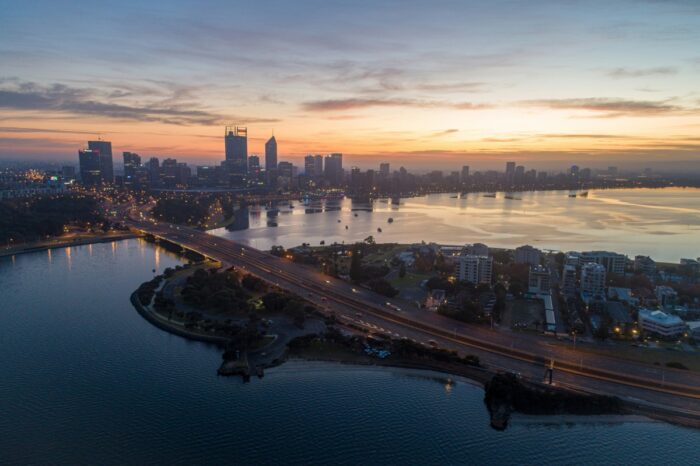Insights
Residential property vs commercial property investment in 2024
Published
30 April, 2024

How can two types of real estate be so different? The residential property vs commercial property investment debate is a relatively new one, given the power to invest in the latter has only recently been popularised (thanks to unlisted property trusts and REITs). Both asset classes have their pros and cons. But what about in 2024? Is residential property or commercial real estate more deserving of your hard-earner?
Investing in residential property in 2024
Typical benefits of residential property
Residential real estate is familiar. It’s well known to all of us who’ve spent nearly every night under the roof of a house, and that helps with your investment knowledge, given you’d know what a liveable, well-designed house looks like.
It’s also popular for providing serious capital growth when either the market demand is high and supply is low (a teaser for what’s to come in this post), or you have the ability to add value to the property itself. Think renovations, extensions, subdivisions, etc.
Yields, on the other hand, sometimes go amiss for residential property investors. You might be happy with a gross yield of around 3 per cent. But because the majority of investors use the bank to help purchase their asset, the rental income received usually goes straight towards mortgage repayments. Net yields are thus not always great.
Inaccessibility in the east in 2024

I recently heard a property buyer’s agent say, “Investors on the west coast won’t buy because they’re waiting for the right time. Investors on the east coast won’t buy because they can’t.”
Residential properties in Melbourne and Sydney suburbs are simply inaccessible to most investors, and the majority looking to enter the market are having a tougher time as interest rates remain high, alongside the values for any potential purchase. One interest rate rise might mean thousands of dollars in additional mortgage repayments per month. For investors, their property’s rental income must be herculean in order to counter those rising interest obligations—and quite simply, they are not (at least in Melbourne and Sydney’s most prominent suburbs).
Therefore, buyers are looking to outer suburbs and alternative regions of NSW and Victoria. Take Yarra Glen as an example, 55km north-east of Melbourne’s CBD. This destination region has a relatively affordable median of $833,000, up 23 per cent from $677,500 in 2019. It’s the working-from-home option that may see more Melbournians move to regions like this, providing a decent reason for investors to find their next investment property outside of the city’s boundary.
For investments outside of major east coast cities, the capital requirements are far lower. But of course the risk exists of lower relevance to the incoming international arrivals, which make up the majority of arrivals in the east coast. Afterall, a considerable number of Australia’s interstate migrants these days are headed west.
Value growth in the west

This Perth-based author can’t help begin with the opportunities currently available in West Australia’s residential market. Never before have we seen this incredibly high demand, contrasted with such low supply.
Tens of thousands of new arrivals each quarter and only 2,000-3,000 established dwellings to house them; Perth is truly a rising market. Investors should not have any trouble finding high-quality renters for their unit or house. Nor should they have difficulty enjoying some serious value uplift.
While property prices have skyrocketed—Perth’s median hit a new high of $590,000 by the end of 2023—2024 is set for even higher capital growth opportunities. Experts are tipping that the best is yet to come for those with a foothold in WA, with Perth property prices predicted to boom by up to 30 per cent this calendar year.
That means exceptional growth likely lies ahead, with price tags that are very much affordable for those interstate buyers accustomed to east coast prices. Purchasing and splitting subdivisible properties won’t only be very valuable for those with a value-add mentality, but will also help ease the housing crisis currently plaguing our state.
Investing in commercial real estate in 2024
Commercial real estate—the asset class once reserved for high-net-worths—has become far more accessible thanks to property syndicates. So, if you’re looking for secure, long-term cash flow, you’ll find plenty of like-minded investors to pool your funds with in 2024.
Interest rates and yields
Indeed, commercial property is known for its higher yields, providing investors with incredible passive income investment opportunities. That said, for investors looking to join the market in 2024, the high interest rate environment has deteriorated yields. The 8-plus-per cent yields seen a couple years ago are difficult to find today.
Perth CBD’s rising office market

In the first quarter of 2024, Perth’s CBD office market proved itself as a major investment target, with robust demand and resilient rental trends amidst WA’s economic growth. While the rest of the country faces a so-called “global office crisis”, with more and more businesses exiting the office culture, Perth is bucking the trend and standing out with major investors competing for limited premium stock.
As we showed in a recent update, CBRE’s Q1 2024 report shows a rebound in leasing enquiry volumes, primarily in prime market segments, marking a preference for higher-quality properties. Rental rates remain steady for prime CBD properties, with seriously limited developments forecasted for the year, consisting mainly of refurbishments. That bodes well for landlords, given supply has a ceiling and demand is growing. (We’ve already seen how these levers affect a market in our residential portion of this post.)
Want deeper insights on Perth’s CBD office market? Download our free white paper, The True State of the Perth CBD Office Market.
Medical steps into the spotlight
After COVID-19, essential services tenants became a target for commercial real estate investors. These are assets who are not only unlikely to close in the event of a major event (such as a pandemic), but who are in fact relied upon in times of such uncertainty. And in 2024, medical assets and their occupants are high up on this list.
Relevance is a key factor when considering where to invest. It helps an investor understand if the target asset will remain occupied, not just tomorrow but years into the future. And medical centres are evergreen, in that their relevance will always exist.
The key considerations for investors to consider will be location, and ensuring the density of medical providers is not too high in their chosen area. Too many GPs, pathologists, physiotherapists, and the like, might spread foot traffic too thin in that area. That said, if a tenant complements those providers in the asset’s locale, then the premises (and its landlord) only stands to benefit.
Which is best for your capital: residential property or commercial real estate?

In 2024, interest rates are set to drop after 13 subsequent rises. The overall cost of living has seriously increased in the last two years, and Australians’ definition of “affordable housing” is all over the place (depending which state you ask). Both residential and commercial property markets’ two biggest value levers—supply and demand—are being tugged hard.
But it’s not a matter of which is “better”. It’s a matter of which property asset class suits your investment goals this year (and for the next five to ten years).
Residential property will continue providing exceptional value growth for those who know where to look. And steady yields are likely in the commercial market, as long as investors have the capital, networks and nous to find high-quality assets on their own. If they can’t, it could be best to look towards unlisted property trusts—like one of ours.



